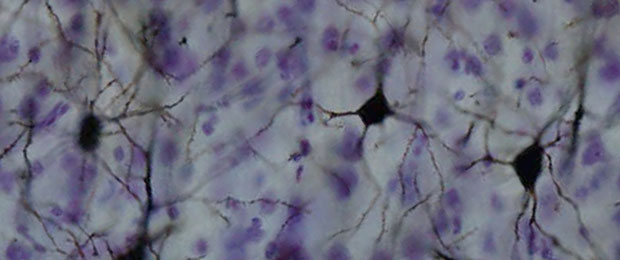Draw closer around the flickering firescreen, and hear four tales of brains, words, medical improvement, and the sharp ache of the wisdom teeth of the future poking through the soft gum of the 21st century as diagnosed by Dr Sterling.
- Mind Bites – Flickr set of findings from neuroscience on top of beautiful photos. Mind candy meets eye candy.
-
Dr Johnson’s Dictionary – the original dictionary of the English language, reborn as a word a day blog. Love the old citations, e.g.
A’DAGE. n.s. [adagium, Lat.] A maxim handed down from antiquity; a proverb.
Shallow, unimproved intellects, that are confident pretenders
to certainty; as if, contrary to the adage, science had no friend
but ignorance. Glanville’s Scepsis Scientifica, c.2.
Fine fruits of learning! old ambitious fool,
Dar’st apply that adage of the school;
As if ’tis nothing worth that lies conceal’d;
And science is not science ’til reveal’d? Dryd. Pers. Sat. i. -
Peter Provonost – prevented untold infections in hospital procedures by instituting a simple checklist. This is a long article, but worth reading as it shows how to institute change. He was diligent, scientific, and worked with the teams instead of against them. For more like this, read The Best Practice: How the New Quality Movement is Transforming Medicine
The Best Practice by Charles Kenney, a fascinating look at the quality movement in healthcare.
-
Bruce Sterling’s State of the World 2009 – I’m just skipping through reading Bruce’s responses. Some fabulous zingers that make me look forward to his presence at Webstock in February: “The Americans
don’t have a place to offshore their money. They can offshore their
LABOR, that’s dead easy, but their money? If the American dollar goes,
finance as an industry gets the blue screen of death.. On urban reinvention: “Suppose you found some dead James Howard Kunstler strip-mall burg,
bought it for a dollar, and turned it into “OpenSource-opolis” where
every possible object and service was creatively commonized. Would
that be heaven, hell — or what we’ve got now only different?” On netbooks + cloud slowing the upgrade cycle: “I’ve been a computer “consumer” for decades now, in the sense that I
follow the trade press and buy computers regularly, but I dunno: if a
$300 netbook running freeware lets me get the job done, 2009 may be the
year when I just plain vanish off the radar.”. Oh forget it, as is always the way with Sterling every damn sentence is quotable—go read the whole thing yourself and enjoy.








